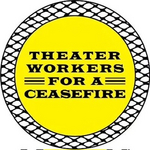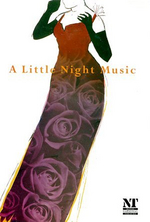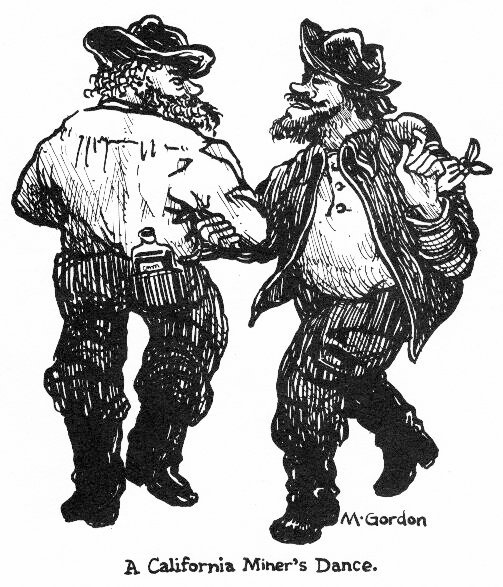Closing a show- question
#1Closing a show- question
Posted: 2/25/16 at 7:08am
I apologize if this is a dumb question, but I just wouldn't know what to search for thread-wise.
I was reading through old Wonderland (Wildhorn's) threads and it said the attendance figure for the show were always above the 80% and there were comments saying how attendance rates don't matter for a show's premature closing. And of course Wonderland closed very quickly- people were discussing but I couldn't understand what they were talking about.
So- for a dummy- what does matter for a shows length of a run? How do they determine whether or not to close a show? If a show is in 80% attendance every week- does that not count for a profit?
Just curious..
pupscotch
Broadway Star Joined: 1/24/16
#2Closing a show- question
Posted: 2/25/16 at 7:28am
I think it depends on the running costs vs the profits. So if they have an 80% attendance rate, but the money from those tickets isn't enough to pay all the actors and other employees, the show will close early, because they just don't have enough money to keep running.
#3Closing a show- question
Posted: 2/25/16 at 7:36am
I have a question. When a show closes do the actors have a specific amount of time to pack up their things. I can't imagine an actor having to walk home with all their makeup in hand.
#4Closing a show- question
Posted: 2/25/16 at 7:40am
You need to look up the gross potential and average ticket price in conjunction with the attendance in order to get the full picture. If you have 80% attendance, or even 100% attendance, but everyone only paid $10 to get in then you aren't making much money and will close quickly. Remember, people with comps are included in the attendance numbers too, so just because a butt was in the seat doesn't mean they paid full price or anything at all.
On the other hand, you can have a show sitting at 70-75% attendance, but have an average ticket price of $100 and you'll probably be doing ok- unless the running costs are just extraordinary.
As an example, On Your Feet, which is playing in the same theater that housed Wonderland, had 76.9% attendance this past week, with an average ticket price of $103.18. The gross potential was only 66.5%, but they still grossed $1,032,021 which is pretty fantastic. They aren't doing sell-out business, but the majority of the people who are going seem to be paying full price.
#5Closing a show- question
Posted: 2/25/16 at 7:56am
So now I'm wondering Whizzer- why have such low costing comps in the first place- if you know that even in the case 80-90% attendance you're not getting a profit, why have such low paying tickets to begin with? also aren't comps usually introduced later in a run of a show?
Thank you for the answer though- clears it up for me a bit!
#6Closing a show- question
Posted: 2/25/16 at 8:15am
I think the idea is to use papering services/steep discounts to generate world of mouth and buzz for shows that haven't sold well in advance of previews. Heavily comped shows are normally a preview thing, not something for late in the run.
Look at something like Bright Star. Here's a show that seems to be coming into town almost aggressively under the cover of night. Zero publicity. Zero advertising. Hell, I don't even know what the show is about and I like to pay attention to these things- imagine how little the casual theatergoer is even aware this show is about to begin previews this evening. So the show will offer comps and cheap seats in an attempt to raise interest in the show. If the show is good and the majority of word of mouth is strong then they can pull the discounts and stop papering the houses- that's the hope at least- although many of these shows are dead on arrival, regardless of the quality.
I think another aspect is that the producers hope that if you come on a discount, or especially a comp you might be more forgiving of a show in previews as they work things out. I mean, if someone walked up to you on the street today and handed you two comps to Bright Star and said, "Come check out our show tonight on us and tell your friends if you like it," wouldn't you be more inclined to walk into the theater with a goodwill toward the show and give it chance than if you purchased two orchestra seats for $145 each and had higher expectations to be impressed? Without any word of mouth how many people actually will take a chance on $145 orchestra seats?
#7Closing a show- question
Posted: 2/25/16 at 8:28am
Oh that makes a lot of sense.
As for the Bright Star example- is that just bad producing/publication on the production team's side for that show?
I mean- as you say- if the average (and even passionate) theatre goer has no knowledge of this show('s content) how do they expect it to succeed? or even just run respectfully? Are they just doing their job poorly? or was there no way to give it proper publicity and the only way to maybe make a show like this work is to comp it and pray?
Sorry for all the questions- its just really interesting. I'm finally understanding just how hard producing something new on broadway actually is- makes you wonder how some people ever did it successfully at all.
#8Closing a show- question
Posted: 2/25/16 at 9:16am
I think it's really interesting too. Savvy producing can be a wonder to behold and even the best producers wind up with flops on their hands. Only about 1/4 of all Broadway shows are hits so that tells you how difficult it is to succeed in this business. Makes you appreciate a show like Next to Normal recouping even more considering how many people, including fans of the material, thought it was foolhardy to bring the show to Broadway. On paper it looked like anyone would face insurmountable odds trying to turn a profit with a show like that, but they really marketed it well, and of course the reviews and generally favorable word of mouth helped too.
re: Bright Star- I think the producers have a tough row to hoe. The title doesn't give you any hint as to what the story is about and my understanding is that this is an original musical so they can't rely on the public's knowledge of a play, book or film to give us a sense of the plot. Before On Your Feet came in I saw subway ads, billboards, etc EVERYWHERE (still do), and of course all they had to do was slap the title On Your Feet: The Story of Emilio and Gloria Estefan with a picture of a Ana Villafane up there and it tells you pretty much what you need to know. The tagline "Her Voice. His Vision. Their Story" also gives you a good idea of what you're going to see. On Your Feet is an easier sell than Bright Star, but that shouldn't diminish would a good job they did promoting this show. On Your Feet is still offering discounts for $99, and judging from the average ticket price people are taking advantage of the offer- and really, who can complain about selling your orchestra out at $100 a pop. That's how they're continually grossing over a million a week.
Maybe Bright Star is advertising somewhere and I'm just not seeing it, but I live in Hell's Kitchen and am walking around midtown all the time. There should be a visible presence for a new show if it wants to have any chance at succeeding, especially during the glut of new arrivals that have become more concentrated in March and April each season.
#9Closing a show- question
Posted: 2/25/16 at 10:34am
Great answer Whizzer.
I was taught by an old-school producer that you should budget in such a way that you're safe even if every ticket is discounted in the early weeks.
The producing innovation that really interests me at the moment is Lloyd Webber's decision to release amateur rights to School of Rock. He is rightly famed for his ability to think outside the box, and I suspect this might be a really canny way to generate a wide fan-base and awareness of his new show with the younger generation.
#10Closing a show- question
Posted: 2/25/16 at 6:00pm
In addition to Whizzer's sharp and absolutely accurate analysis, here are two more reasons to offer discounts, even if it means running at a loss.
1. Empty house are very demoralizing to actors. Now maybe your average producer doesn't care how the actors feel, but night after night playing to empty seats can quickly begin to affect the quality of the show.
2. No show wants to get a reputation as a bomb. This is the converse of generating word-of-mouth with discounts and paper. If you leave most of your house empty, the few patrons who do attend will go home and tell their friends the show must be a dud (whether or not they personally liked it).
***
A side note: I once worked as a box office treasurer and in my experience, patrons who get their tickets for free or heavily discounted are the MOST obnoxious to deal with. They act like they are doing you a favor by showing it, which I suppose they are, but still...
Broadway kid 2
Stand-by Joined: 6/7/14
#11Closing a show- question
Posted: 2/25/16 at 6:03pm
GavestonPS said: "In addition to Whizzer's sharp and absolutely accurate analysis, here are two more reasons to offer discounts, even if it means running at a loss.
1. Empty house are very demoralizing to actors. Now maybe your average producer doesn't care how the actors feel, but night after night playing to empty seats can quickly begin to affect the quality of the show.
2. No show wants to get a reputation as a bomb. This is the converse of generating word-of-mouth with discounts and paper. If you leave most of your house empty, the few patrons who do attend will go home and tell their friends the show must be a dud (whether or not they personally liked it).
***
A side note: I once worked as a box office treasurer and in my experience, patrons who get their tickets for free or heavily discounted are the MOST obnoxious to deal with. They act like they are doing you a favor by showing it, which I suppose they are, but still...
"
VintageSnarker
Broadway Legend Joined: 1/30/15
#12Closing a show- question
Posted: 2/25/16 at 6:11pm
"Without any word of mouth how many people actually will take a chance on $145 orchestra seats?"
This crazy who really wants to see/hear Paul Nolan sing again. But I agree that unless they've got some plot secrets they feel they need to protect, their marketing strategy is baffling. It's not like this is Star Wars. I also haven't seen any ads in magazines or around the city.
#13Closing a show- question
Posted: 2/25/16 at 6:13pm
I do not think a producer is concerned about an empty house being demoralizing to an actor since the producer is giving them a few thousand dollars each week, it is more demoralizing to an audience to sit in a theater that is one quarter full. The paying audience feels that they must be at a flop and were foolish to purchase tickets. This will affect word of mouth even on a good show.
Papering and discounts are available to keep this from happening.
#14Closing a show- question
Posted: 2/25/16 at 6:20pm
My wife and I take advantage of these services plus TDF. We are grateful as without these we could not attend. When we like a show, we praise it to those here and those we know who have a lot of disposable income so they buy tickets. Seems like a win win for all concerned. You do have to feel for actors performing their hearts out to an expanse of empty seats.
wonkit
Broadway Legend Joined: 9/30/08
#15Closing a show- question
Posted: 2/25/16 at 7:11pm
There is also the question of advance sales. If they are good, the show can try to hold on and hope for an improvement. But if advance sales are poor, there is no financial buffer: it can be hard to convince producers to hope that every seat will be sold in the future when there isn't any indication of that.
SLSigafoos
Understudy Joined: 11/21/13
#16Closing a show- question
Posted: 2/25/16 at 9:16pm
VintageSnarker said: ""Without any word of mouth how many people actually will take a chance on $145 orchestra seats?"
This crazy who really wants to see/hear Paul Nolan sing again. But I agree that unless they've got some plot secrets they feel they need to protect, their marketing strategy is baffling. It's not like this is Star Wars. I also haven't seen any ads in magazines or around the city.
I'm glad I'm not the only crazy who was lured into seeing it because it brought Paul Nolan back to Broadway. The man can sing! I'm excited to see Cusack, but Nolan was the reason I was ok with spending around $150 on a second-row seat. I also agree with those who are expressing concern about lack of advertising for the show. I've been baffled about how little press I've seen for it, particularly because Steve Martin is a name at least known to movie and comedy fans. I realize this is a bluegrass show catering to middle-aged adults, so it's already fighting an uphill battle in demographics. I'm just surprised I haven't seen or heard anything about it in my trips back and forth into the city.
Crucible has had even less publicity; they didn't even open social media accounts until a few weeks ago! But their ticket sales, if you check out Ticketmaster, are doing well. I would assume the draw there is the cast itself. I'm a huge fan of Ben Whishaw's acting and he was the draw for me, but the entire cast is solid. Still, the lack of publicity concerned me greatly until a few weeks ago.
LaneBryant
Understudy Joined: 12/20/15
#17Closing a show- question
Posted: 2/26/16 at 2:37am
I have a question. When a show closes do the actors have a specific amount of time to pack up their things. I can't imagine an actor having to walk home with all their makeup in hand.
Seven days notice is the requirement.
trpguyy
Broadway Legend Joined: 2/25/05
#18Closing a show- question
Posted: 2/26/16 at 7:09am
Call_me_jorge said: "I have a question. When a show closes do the actors have a specific amount of time to pack up their things. I can't imagine an actor having to walk home with all their makeup in hand."
Well, the makeup is provided by the show and doesn't belong to the actor. In my experience, any personal effects that an actor has in his/her dressing room can typically fit into a carry-on sized suitcase.
When a show closes, the dressing rooms get progressively bare in the final week.







